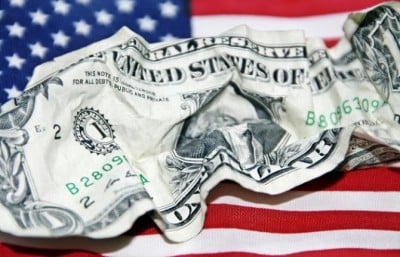Banks and Wall Street Oppose Creation of Digital Dollar

All Global Research articles can be read in 51 languages by activating the “Translate Website” drop down menu on the top banner of our home page (Desktop version).
Visit and follow us on Instagram at @crg_globalresearch.
***
Amid the growing global economic digitization, Washington’s monetary system remains obsolete on some points and with a society extremely divided in opinions about what would be most appropriate for the future of the country. The Federal Reserve unconditionally supports the proposal to create a digital dollar, as it believes this is a necessary modernization of the US system, but Wall Street fears the impact of such a change in the investment routine – opposition that is shared by the banking system, with bankers fearing losses in the loans market as people will be able to take digital money directly from the Reserve.
Global currency digitalization is a process that is advancing rapidly around the world, with several countries creating digital versions of their currencies as a way to compete with the proliferation of private currencies and better meet the demands of an increasingly virtual economy. This process has accelerated particularly after the beginning of the new coronavirus pandemic. During this same period, the idea of a digital dollar began to gain power in Washington – mainly as a way to make possible the dispute for economic hegemony with China, whose monetary digitalization is highly advanced.
As the US dollar is the most used currency in international trade, a project like this was expected, but resistance from some sectors remains strong. Last week, a congressional hearing was held, where Jerome Powell, head of the Federal Reserve, defended the project, emphasizing that creating a digital dollar will eliminate the need to use cryptocurrencies and stablecoins (cryptocurrencies with value determined by stable assets) in transactions. On the same occasion, Powell announced that a report will be released in September, containing the main details of the project, summarizing the risks and benefits, and starting public consultations and debates in the Congress.
The government tends to support any proposal in this regard because, in addition to an economic value, there is an increase in the American projection of power. With the digital economy advancing and with the difficulties presented by cryptocurrencies – which are commonly used for illegal transactions and financing of terrorist organizations – the digital dollar would be a useful tool to preserve US economic and monetary dominance, which is a point of strong geopolitical interest. However, with regard to the investment sector, the perspectives are different.
The banks fear a central point: the possibility of people turning directly to the Reserve to obtain digital currency, which would bring losses to traditional American banks. Undoubtedly, it is the private banks that profit most from the status quo and any change could bring instability to the banking sector. Still, there is a great fear about the possibility of security instability in transactions, generated by cyber-attacks – which are increasingly frequent around the world.
On Wall Street, fears about the digital dollar are also influenced by banks, which warn that as the Federal Reserve starts to interfere in the role of private institutions, loans will become more expensive, hurting investors in the stock market – which depend on bank loans to operate their activities. On this topic, there is an article written by Greg Bae and published in April, in which the Bank Policy Institute concludes that “the potential impact of shifting to an economic system where the government rather than the private sector determines the cost and availability of deposits, and thus of credit”.
It is interesting to note how coherent the arguments of both sides in this dispute are. In fact, the Federal Reserve’s initiative enables the creation of a system with greater state participation in the credit market and this would have impacts on the entire American economy. And, in the same sense, such changes and adaptations are necessary if the US plans to guarantee its hegemony in an increasingly digital world amidst the harsh trade war with China. In any case, there will be impacts, both on the economy and on the US global power projection.
Banks work from a conservative perspective, trying to keep active the system that most favored the growth of these institutions in history: financial capitalism. Central bank-led economic digitization looks like a disaster for the old financial system that provided banks with profits and growth in stock market operations. However, these changes are inevitable and have already been postponed for years.
Financial capitalism has been in crisis for a long time and since 2008 its very existence has been threatened. The pandemic only consolidated a long process of structural changes in the world economic order, accelerating the digitization of economies and the crisis of the current financial system – which becomes obsolete. This is not the end of the banks’ power, just a challenge as they will have to create new ways to finance loans. The adaptation period to the new system will be slow and will bring losses, leading some institutions to bankruptcy. However, this is a central point in American history, in which the US must choose between preserving dollar’s commercial predominance or maintaining the power of the banks, accepting that Washington loses economic and political influence in the world.
*
Note to readers: Please click the share buttons above or below. Follow us on Instagram, @crg_globalresearch. Forward this article to your email lists. Crosspost on your blog site, internet forums. etc.
Lucas Leiroz is a research fellow in international law at the Federal University of Rio de Janeiro.

